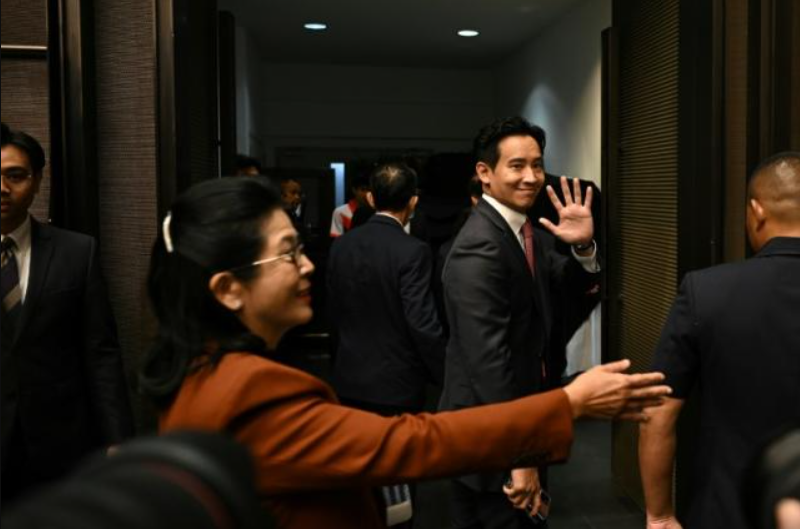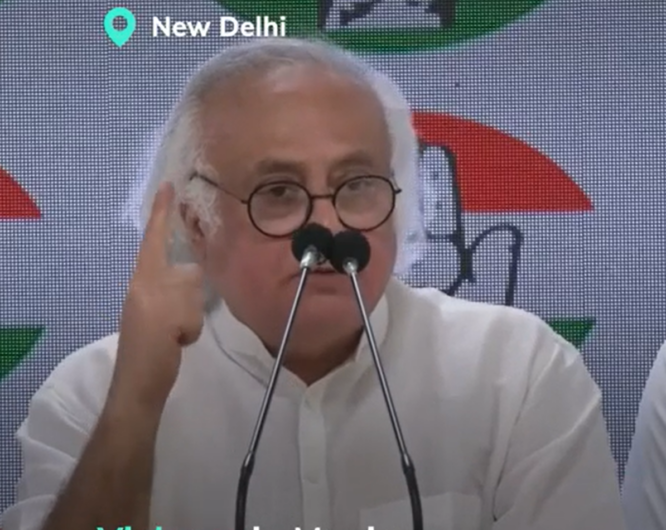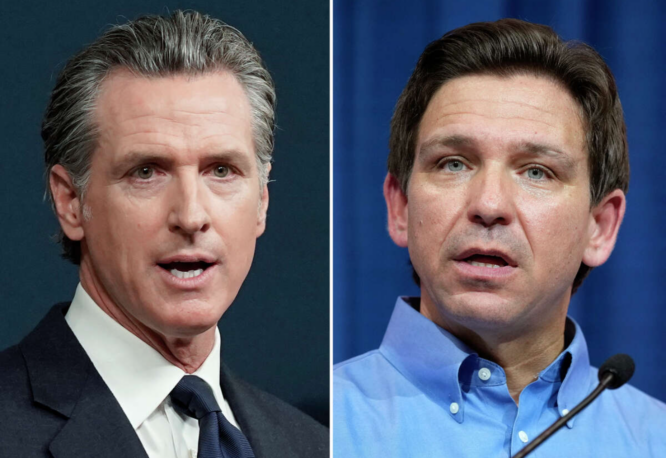After startling the military-backed elite of Thailand with a historic election victory, the Move Forward Party intends to tackle the country’s greatest political taboo: laws against disparaging the monarchy.
However, MFP leader Pita Limjaroenrat’s determination to change the lese-majeste laws safeguarding King Maha Vajiralongkorn has rapidly emerged as a major obstacle to his path to power.
The monarchy has long held a privileged position in Thai society and is shielded from criticism by section 112 of the penal code, which carries a maximum 15-year sentence for violations.
Posters of the monarch are prevalent in stores, homes, public structures, and highway billboards, and cinemagoers are required to stand for the regal anthem prior to screenings.
In 2020, however, pro-democracy protesters led by young people broke the taboo against public discussion of the monarchy’s status, with some protesters calling for the king’s authority and expenditure to be restrained.

In its campaign for Sunday’s election, MFP channeled the reformist fervor of the protest movement by promising to restrict who can file lese-majeste charges and to reduce the maximum sentence.
Strict regulations
The number of prosecutions has skyrocketed in the years since the 2014 rebellion that brought Prime Minister Prayut Chan-O-Cha to power, according to critics.
Section 112 prohibits disparaging, insulting, or menacing the monarch or members of his family.
However, its meaning has expanded to encompass virtually any criticism, whether in public or on social media, including indirect or humorous references.
Since the outbreak of the 2020 protests, more than 200 individuals, including minors, have been prosecuted, some for ostensibly minor offenses.
A man was sentenced to two years in prison earlier this year for selling satirical calendars depicting yellow rubber ducks, which a court deemed to be an affront to the monarch.
MFP proposes reducing the maximum sentence for lese-majeste and limiting who can submit accusations; currently, anyone can do so, and ultra-royalists are known to scour social media for potential complaints to file.
Pita insists that the modifications are necessary to mend rifts in Thai society and that Move Forward will not abolish the law.
“We want to amend, not repeal, Act 112, which can be accomplished in the legislature,” he explained.
We would like to speak with maturity in the legislature, and we will do so deliberately and exhaustively.
In the past, however, the army has used any hint of disloyalty to the monarch as justification for a rebellion.
In 2006 and 2014, the generals overthrew democratically elected administrations, promising both times to crack down on elements menacing the monarchy.
And the current constitution, which was written by the military, makes it exceedingly difficult for Pita to become prime minister, despite Move Forward having won the most seats.
MFP and its rival opposition party Pheu Thai are negotiating a coalition that would give them more than 300 of the 500 seats in the lower chamber.
To secure the position of prime minister, the coalition must have a majority in both chambers, including the Senate.
The 250 senators — monarchist, pro-military arch-conservatives hand-selected by Prayut’s junta — are threatening to obstruct Pita’s nomination.

Senator Jadet Inswang stated, “I disapprove despite the number of members of parliament he has gathered.”
“I will not accept Pita as prime minister because he… has stated in the past that he would abolish the 112. I can’t tolerate.”
Cycle of conflict
According to political scientist and researcher at the Yusof Ishak Institute Napon Jatusripitak, the issue is now part of the political debate regardless of whether or not Pita becomes prime minister.
“I believe there will be some political space for amending the lese-majeste clause, regardless of whether or not the MFP joins the government,” Napon told AFP.
This election has been a type of silent referendum on that issue.
Rejecting a prime minister selected by a coalition government with such a large electoral mandate could precipitate a new crisis in the nation, with protestors likely to flood the streets.
This would reinvigorate the twenty-year cycle of elections, street demonstrations, and coups that has plagued Thailand, fostering instability and impeding progress.
Despite the obstacles they face, many MFP supporters believe the dam has already been breached.
“This election was a slap in the face of the older generation, the old mindset, the old belief, and the old politics — the status quo has been demolished,” Panussaya Sitthijirawattanakul, a 2020 protest leader facing multiple lese-majeste charges, told AFP.




